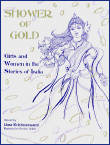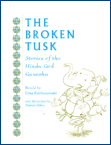|
The AACP Newsletter |
||
| Since 1970 | Asian American Curriculum Project, Inc. - Books for All Ages | April 2004 |
| Newsletter Home Page | Event Schedule | AsianAmericanBooks.com | Editor's Notes | Featured Books |
At a GlanceEast Indians are Asian TooA historical look at how East Indians became Asians in the eyes of the US Government
Is There Anything Left to Say About William Hung?
A South Asian American's Perspective
Announcements
|
|
||||||
|
By Melissa Eng Edited by Philip Chin and Leonard Chan
Editor's Note: Many of us have few opportunities to meet with people of |
|
|
Joanne Newnes, is an international student at U.C. Davis and is a dear friend of mine. In doing this interview with her, I learned a lot about her personality, her life story, her culture, and her multicultural views, which brought us closer together, as friends and as cultures. Joanne was born in Bombay, India, 21 years ago. When she was six years old, she immigrated to Dubai, which is located in the United Arab Emirates. About 40% of Dubai is composed of Asian Indians so she was further immersed in her culture. Dubai is a very urban area, like San Francisco, and it is also a "mixed" culture. Dubai is not as "mixed" as major cities in America, but it is composed of many cultures, namely Arabs, Pakistanis, Indians, and Filipinos. To Joanne, growing up in this mixture, race didn't matter because individual personalities mattered more. Joanne spent six years in India and eleven years in the heavily Indian-influenced Dubai in the United Arab Emirates. She had an easier time understanding the role of whites as being the "dominant" race in the United States since she spent most of her life belonging to the "dominant" race in India and Dubai. Since Joanne's ethnicity was generally considered "standard" or, at least, one of the main "standards" where she lived, she was unaware that she was carrying an invisible knapsack of privilege just as whites here are mostly unaware of their uniquely privileged positions in US society. When Joanne came to the United States at the age of seventeen, it was the first time she was seen as "different." Even though she moved to a place as diverse as the San Francisco Bay Area (with blacks, whites, Latinos, Asians, and Native Americans) that did not mean that Bay Area residents were completely tolerant of her racial differences. The dominance of a single race is the antithesis to the idea of multiculturalism, the diversity of America that makes this country so fascinating. In Making Face, Making Soul, Lorna Dee Cervantes sadly reminds herself that, "...This is not my land and this is my land. I do not believe in the war between races but, in this country, there is war." Joanne found herself relating to Cervantes' quote (but, in a subtler way) and the plight of non-white minorities. For Joanne this was a different experience. Joanne for the first time was now a member of a racial minority and she often found that people would make wrong assumption about her. For example, people would assume that Joanne was Hindu when she was really Catholic. She would be asked about the gods in "her" Hindu religion, such as Ganesha, the god with the elephant head, and Shiva, the god(dess) with the many hands and arms. When Joanne would inform people that she was Catholic, people would be shocked. Having the "wrong" religion for her race frustrated Joanne. Another common assumption that Americans would make is that they assumed that Joanne would be having an arranged marriage. People also assumed that her first language would be Hindi. In actuality, English is her first language and Hindi is her second language. Generalizations about Asian Indians, like generalizations of any individual, are often proven to be false. These stereotypes stem from ideas designed to set racial groups apart from one another, as well as from just plain ignorance. In order to dispel these stereotypes, people need to realize that not all Asian Indians display these generalizations and that it is unfair to create racial boundaries by generalizing anyone from any culture. |
With all the generalizations and stereotypes of Asian Indians in mind, Joanne has learned not to believe in the stereotypes that people make about others outside of her ethnic heritage. All people are created equal and racially "unequal" notions, such as Latinos and Blacks being intellectually inferior, should be fought. Joanne has educated herself about different races and cultures by directly asking people of "different" races questions about their cultures, from watching their ethnic dances (she is a dancer), and through news, educational, and cultural shows in the media. Joanne belongs to an all-white (except for her, of course) Catholic youth group in Millbrae, California. Being the only "colored" person and a minority automatically singled her out. There would be cliques within her youth group that did not want to know her because she was "different." However, Joanne enjoyed it when the other people in her youth group were inquisitive about her culture. By having a general understanding of the role of being in a "dominant" culture, Joanne did not chastise them for asking ignorant questions (unless they were asked in an unjust, obviously hostile manner). She answered their questions and clarified their stereotypes. Being inquisitive is one of the first steps towards racial tolerance. Minimizing ignorance creates understanding. Understanding the different ethnicities of people helps to contribute to the validity of the nation's motto: "E. pluribus unum" - "Out of many, one." People asking questions about Joanne's culture would make them more open-minded and curious about her culture and where she came from. As for Joanne's ethnicity and where she came from, she is proud to be an Asian Indian and of their many high-achievements. She noted the importance of knowing your own roots because you gain a greater understanding of yourself by knowing where you came from. Joanne enjoys how her culture is collective, very social, and family-oriented. Being Indian in America has given Joanne new perspectives. She has felt the ignorance of people's generalizations and questioning. It has also made Joanne wonder how and why people would treat her differently based upon the color of her skin. The inequality of those kinds of prejudices saddens her. However, Joanne sees reason for optimism. She sees people that are trying to expose themselves to the ways of many ethnicities. Asking ignorant questions is part of the learning process for living in a multicultural community. Why is multiculturalism important? Joanne answered in this way, "Multiculturalism is important, because it gives us a different sense of identity and one that we can represent and be proud of, while learning about others. Just like, I feel the world would not be as interesting if everything was blue in color, rather there are tons of colors, each different from the other and having an expression of their own." As a result of the enthusiastic, mind-expanding experience of this interview, I was further inspired to understand and learn about different cultures and celebrating our differences in a rich, diverse, multicultural America. Editor's Note: The city of Goa was a Portuguese colony in India for hundreds of years. It had a heavy religious and cultural influence on nearby Bombay. Joanne is part Portuguese from both sides of her family tree. Her mother is from Goa and her father from Bombay. |
The following books are discounted for subscribers to our newsletter. The discounts on these books end May 12, 2004. | |

|
The Stone GoddessBy Minfong Ho2002, 201 pages, hardback. After the Communists take over Cambodia and her family is torn from their city life, twelve-year-old Nakri and her older sister attempt to maintain their struggle to survive.
View Additional Information
|

|
Shower of Gold
By Uma Krishnaswami |

|
Hush!
By Minfong Ho |

|
The Broken Tusk
Retold by Uma Krishnaswami |

|
Muslim Child
By Rukhsana Khan |
Copyright © 2004 by Asian American Curriculum Project, Inc. (a non-profit organization since 1970)
Visit our website at AsianAmericanBooks.com
To unsubscribe simply reply to this email and type "REMOVE" in the subject line.